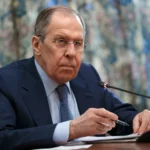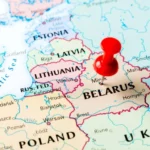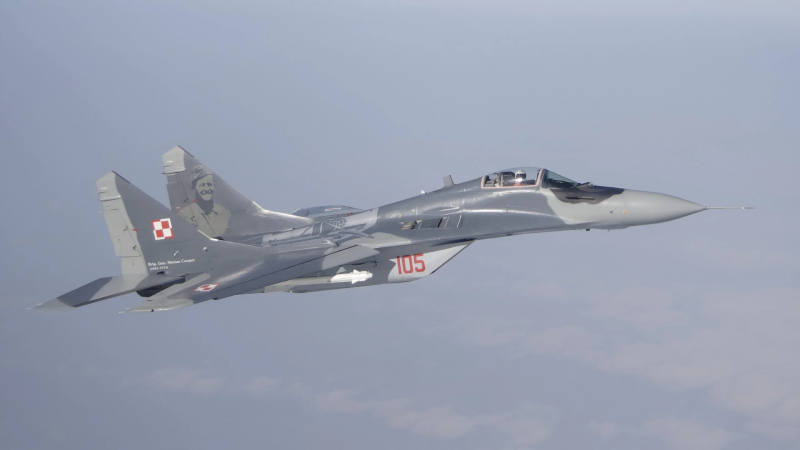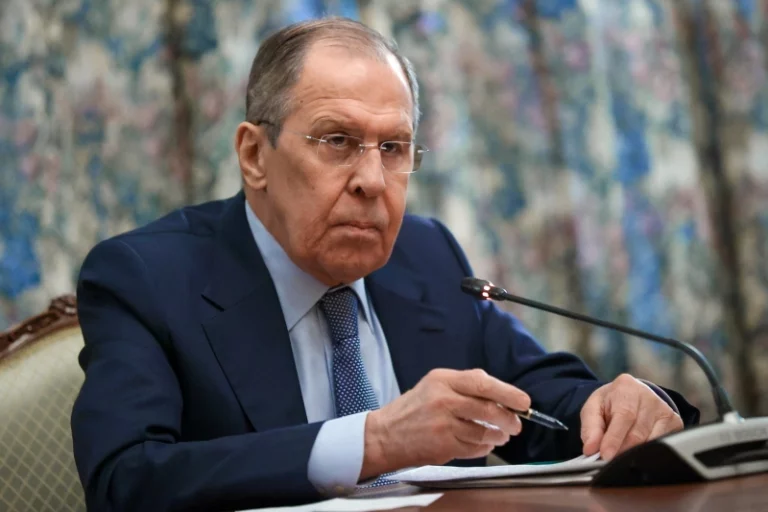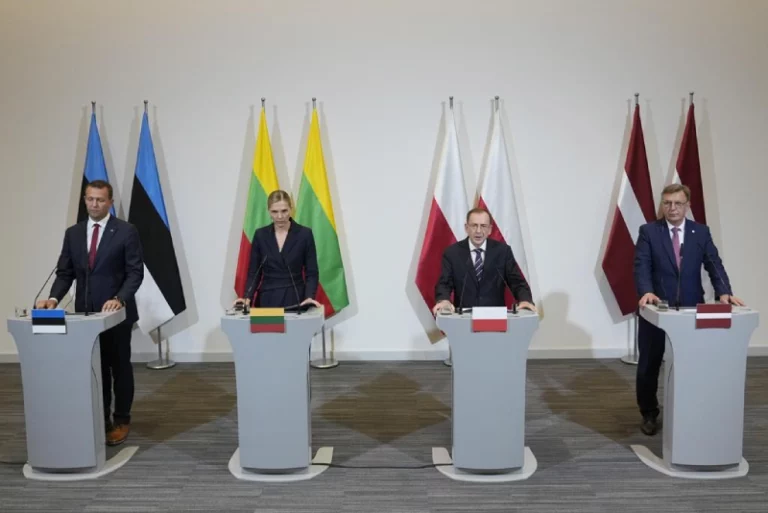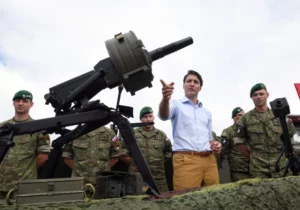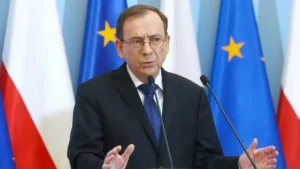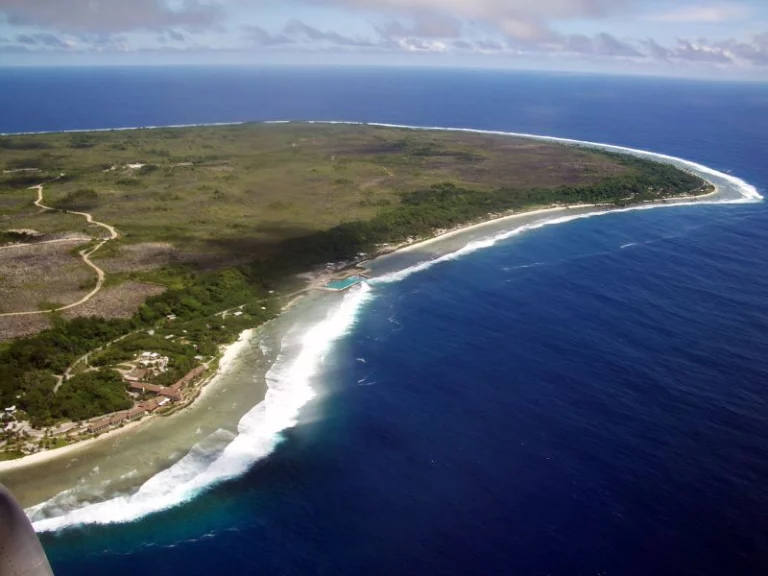Poland has pledged to send four MiG-29 fighter jets to Ukraine, marking the first time a NATO member has done so.
The move is seen as significant in Ukraine’s ongoing battle to resist Russia’s aggression. Poland has been a leader among NATO allies in supplying Kyiv with heavy weapons, and the announcement of sending the Soviet-designed planes marks a step beyond the rest of the alliance’s commitments. Other NATO nations have been hesitant to get more involved in the conflict, with the US insisting that Poland’s move won’t force its hand to send F-16 aircraft to Ukraine.
Poland has been one of the most vocal European nations against Russia, even before the invasion of Ukraine. The country is an active member of the European defense community and is one of the few NATO countries that, by law, is required to meet its 2% of GDP defense spending commitment. Sending MiGs is not an unexpected move for Poland and complies entirely with its membership of NATO.
Change in dynamic
However, it might change the dynamic within the alliance, acting as a catalyst for more countries to do so, or upset countries that are opposed to NATO getting more involved in the conflict, such as Hungary.
The biggest question now is whether Poland’s move will put pressure on other allies, such as the United Kingdom and the United States, to do the same for Germany.
Ultimately, creating this pressure on other allies was probably Poland’s intention. The White House has said that Poland’s decision to send the fighter jets is a “sovereign decision” that won’t spur President Joe Biden to send F-16 aircraft.
Poland’s move could have significant global economic repercussions, as its strong economic signals has since weakened due to war tensions between Russia and NATO continue to escalate. The conflict has already led to sanctions and trade restrictions between Russia and some of its neighboring countries, including Ukraine. The ongoing instability in the region has also created challenges for businesses operating in the affected areas as the country grapples with economic growth, now only fueled by global sentiments, as opposed to domestic demand and growth.
The conflict has had a significant impact on the global oil market. Russia is one of the world’s largest oil producers, and its tensions with NATO have led to fluctuations in oil prices. Investors have been keeping a close eye on developments in the region, with some worried that the conflict could lead to further instability in the global oil market.
The conflict has also led to an increase in military spending in the affected countries. Poland, for example, has been actively increasing its defense spending and has been one of the few NATO countries to meet its 2% of GDP defense spending commitment. Other countries in the region, such as Ukraine, have also been increasing their military spending in an effort to resist Russian aggression.
Breakdown in diplomatic ties
The conflict has also had a significant impact on international relations. The ongoing tensions between Russia and NATO have led to a breakdown in diplomatic relations between the two sides. The sanctions and trade restrictions imposed on Russia have also led to tensions between Russia and some of its neighboring countries. The conflict has created a challenging environment for diplomacy, with few signs of a resolution in sight.
In addition to military spending, the conflict has also had a significant impact on humanitarian aid in the region. The ongoing instability has led to significant humanitarian crises, with many people displaced from their homes and struggling to access basic necessities. The conflict has also created challenges for aid organizations operating in the affected areas.
The conflict has highlighted the importance of international cooperation and the need for strong diplomatic relationships. It has also highlighted the need for increased investment in infrastructure and development in the affected areas. The ongoing instability in the region has created significant challenges for businesses and investors operating in the area, highlighting the need for careful risk management strategies.
The announcement by Poland to send fighter jets to Ukraine has wider implications for the global economic and political landscape. As tensions between Ukraine and Russia continue to escalate, countries around the world are being forced to take sides and decide how to respond.
Poland’s decision to send fighter jets is significant for several reasons. Firstly, it marks a departure from the rest of NATO, which has been hesitant to provide heavy military equipment to Ukraine. This move by Poland could put pressure on other member states to follow suit and provide more military support to Ukraine.
Secondly, it highlights the growing divide between NATO and Russia, which has been steadily increasing since the annexation of Crimea in 2014. NATO has been stepping up its presence in Eastern Europe in response to Russian aggression, and this move by Poland is likely to be seen as another provocation by Russia.
Thirdly, it could have economic repercussions for Poland. Russia is Poland’s largest trading partner outside the EU, and any further escalation in tensions could lead to economic sanctions or a reduction in trade between the two countries. This could have a significant impact on Poland’s economy, which is already facing headwinds due to the pandemic.
On the other hand, Poland’s decision to send fighter jets to Ukraine could also have economic benefits. As tensions between Russia and the West continue to escalate, there is likely to be an increased demand for military equipment and services.
Poland’s defense industry could stand to benefit from this trend, as it has a strong manufacturing base and is already a major exporter of military equipment.
Poland’s decision to send fighter jets to Ukraine is likely to have far-reaching economic and political implications. While it is a significant move that could put pressure on other NATO member states to provide more military support to Ukraine, it also risks further escalating tensions between Russia and the West.
Only time will tell how this will all play out, but one thing is clear: the situation in Ukraine is far from resolved, and it will continue to be a major flashpoint in the years to come.
